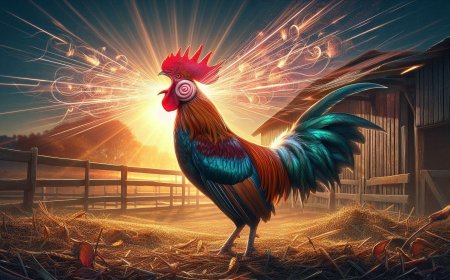The Mystery of the Yawn: A Window into Brain Power
Discover the fascinating mystery of yawning and its connection to brain power. Explore how this natural reflex reveals insights into cognitive activity and mental energy.

We’ve all yawned—perhaps you're yawning right now just reading this! But what if I told you that yawning, a seemingly simple act, is actually a sign of brain power? Recent research reveals that vertebrates with larger brains and more neurons tend to have longer yawns. This surprising discovery suggests that a yawn is far more than a signal of boredom or fatigue—it’s a glimpse into the complexity of our brains.
Yawning begins with a deep inhale, followed by a slow exhale, as your mouth stretches wide. While this action may seem ordinary, it’s actually performing an essential function: cooling your brain. Just like how a computer overheats with heavy use, our brains can become warm with mental activity. Yawning acts as a reset button, bringing in cool air and promoting blood flow to the brain, helping to keep it functioning at its best. And here’s where it gets fascinating: the bigger the brain, the longer the yawn.
Scientists have long been curious about why different animals yawn for different lengths of time. By studying a wide range of species—from mice to humans to birds—researchers found a clear trend. Larger animals with bigger brains, like humans or owls, have longer yawns than smaller animals, like mice or sparrows. Humans, for example, have yawns that last about six seconds, while mice yawn for just a brief second or two. This difference isn’t random—it’s a clue to the complexity of the brain.
The reason lies in neuron density. Larger brains tend to have more neurons, and these neurons generate heat when working hard. In animals with more neurons, cooling the brain becomes a more significant task. That’s why a longer yawn is needed—to cool down all that extra brainpower! For species with smaller brains, a quick yawn does the trick.
This discovery has sparked new discussions about the evolutionary purpose of yawning. For creatures with more complex brains, maintaining optimal brain function is critical for survival. A longer yawn might have evolved as a way to keep the brain cool and sharp, supporting higher cognitive functions like problem-solving and memory.
But the science of yawning doesn’t stop with animals. It may also offer insights into human brain health. In people, changes in yawning patterns could be a signal that something is off. For example, excessive yawning might be linked to conditions affecting the brain, such as multiple sclerosis or even a brain injury. On the other hand, yawning less than usual could indicate reduced alertness or cognitive function. Monitoring yawning could become a simple yet powerful way to assess brain health.
In animals, observing yawning behavior offers a unique window into their cognitive abilities. Researchers can track how long animals yawn to better understand their brain function, unlocking new clues about the inner workings of their minds.
Yawning may seem like a small, mundane act, but as this research shows, it’s actually a fascinating and vital process. From humans to mice to birds, yawns reveal the incredible complexity of the brain and its never-ending quest to stay cool, sharp, and ready for action. So, the next time you feel a yawn coming on, remember: it’s not just a sign that you’re tired—it’s your brain working to keep you at your best!
What's Your Reaction?







































































































